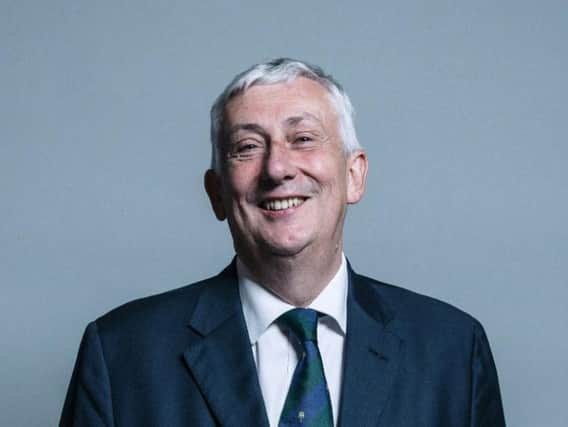Deputy speaker admits Parliament has a drugs problem


Sir Lindsay Hoyle, who is currently one of three deputy speakers and MP for Chorley, was addressing journalists at a hustings event for MPs running to replace Speaker John Bercow in the chair yesterday.
Asked whether there was an alcohol problem in Parliament, Sir Lindsay sad there was and support needed to be extended, but he added: "It's not just drink we've got to catch out, there is a drug problem, and I genuinely believe that counselling and real support should be available for all staff and members."
Advertisement
Hide AdAdvertisement
Hide AdWhen pushed to confirm whether he had just disclosed there is a drug problem within Parliament, Sir Lindsay said: "I think, I believe there will be a drug problem - there is a drug problem right across this country.
"I don't believe that somebody who walks in here may not be tempted into drugs, and what I'm saying is that we should have health and wellbeing in place for drink and drug counselling and real support for anybody."
Sir Lindsay is one of nine candidates looking to replace Mr Bercow as Speaker when he steps down at the end of the month following a decade in the chair.
Also running is Doncaster Central MP Dame Rosie Winterton, who said she did not feel Westminster had a worse problem with alcohol than anywhere else.
Advertisement
Hide AdAdvertisement
Hide AdShe said: "Does Parliament have a greater drink problem than the world outside? I'm not sure."
On Tuesday Leeds East MP Richard Burgon revealed he had been sober for a year.
He tweeted: “Chuffed that today I’ve completed the challenge I set myself of a year without any alcoholic drinks! I started off aiming to do a month or two but then enjoyed it so much I just carried on!
“As someone who loves real ale, it feels like quite an achievement. I recommend it!”
Advertisement
Hide AdAdvertisement
Hide AdBetween 2017 and 2018 some 4,000 bottles of wine were drunk by politicians - up 20 per cent on the year before.
And previously high profile figures such as Diane Abbott have spoken out about the hard drinking culture in Parliament.
Earlier this year it was announced Commons authorities would introduce more non-alcoholic and low-alcohol choices at establishments in the Palace of Westminster as part of an effort to change the drinking culture.
It comes after Dame Laura Cox's report into bullying and harassment in Westminster.
Advertisement
Hide AdAdvertisement
Hide AdHer report, released in 2018, said: “The steps taken so far to restrict access to alcohol during working hours may need to be revisited.”
There are eight bars for MPs alone, with more for the lords, and most are accessible to staff too.
A Parliamentary spokesman said: "Parliament takes the issue of substance misuse very seriously and offers a range of welfare and health support services for those who need them.
"Parliament is a public place and we welcome over a million visitors a year who have access to the facilities. Should drug use be identified in Parliament, appropriate action would be taken.
Advertisement
Hide AdAdvertisement
Hide Ad"Both the House of Commons Commission and the House of Lords Commission have agreed a number of actions to promote responsible alcohol consumption among all customers on the estate.
"These include increasing the range of non-alcoholic drinks and lower strength beers available, reducing opening hours for some bars, training and supporting staff to refuse to serve customers when necessary, expanding and encouraging alcohol-free areas, in-house management of the former Sports and Social Club Bar, discouraging Members and staff from drinking in offices after bars are shut, and not running promotional advertisements."